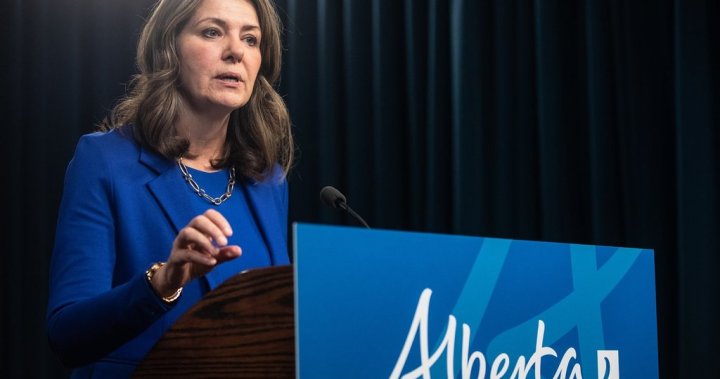In a striking revelation that has sent ripples through Alberta’s political landscape, Premier Danielle Smith’s government disclosed Tuesday that the majority of Albertans who participated in their pension plan consultation opposed withdrawing from the Canada Pension Plan (CPP). This development marks a significant setback for one of the United Conservative Party’s most contentious sovereignty initiatives.
The comprehensive survey, which garnered responses from over 94,000 Albertans between February and April, revealed that 63% of participants rejected the proposed Alberta Pension Plan. Only 30% expressed support for the provincial government’s ambition to exit the national retirement program, with the remaining 7% indicating they were unsure.
“The consultation results clearly demonstrate that Albertans have serious reservations about moving forward with an Alberta Pension Plan at this time,” acknowledged Finance Minister Nate Horner during a news conference in Edmonton. “Our government has heard these concerns and will respect the will of Albertans.”
This decisive public rejection comes after months of controversy surrounding the UCP’s pension proposal, which gained momentum last September when the government released a third-party analysis suggesting Alberta could claim approximately 53% of CPP assets, roughly $334 billion, if it established its own pension system. The analysis, conducted by Lifeworks, was immediately met with skepticism from federal officials and financial experts who disputed the methodology and characterized the asset calculation as wildly optimistic.
Premier Smith, who had previously championed the pension exit as part of her broader “Alberta sovereignty” agenda, has now been forced to acknowledge the public’s clear preference. “While we still believe there are potential financial advantages to an Alberta-managed pension system, we recognize that Albertans have spoken definitively on this matter,” Smith stated in a written release following the announcement.
The consultation process also revealed Albertans’ primary concerns with the proposed plan. Survey participants expressed significant worries about pension security, portability for those moving between provinces, and skepticism about the government’s asset calculation claims. Many respondents questioned the government’s ability to administer a pension system effectively, pointing to previous challenges with programs like Alberta’s troubled payroll system.
Opposition leader Rachael Notley seized on the results, calling the entire exercise “a costly distraction that needlessly worried seniors and diverted attention from pressing issues like healthcare and affordability.” The NDP has estimated that the consultation process, including the controversial Lifeworks report, cost Alberta taxpayers approximately $7.5 million.
Political analysts suggest this setback may have broader implications for the UCP’s sovereignty agenda. “This represents the first major initiative where public opinion has definitively forced the government to back down,” explained Dr. Janet Wilson, political science professor at the University of Calgary. “It raises questions about the viability of other sovereignty-related proposals that lack broad public support.”
The government has indicated it will now redirect its focus to other economic initiatives, including diversification efforts and infrastructure investments aimed at strengthening Alberta’s economic position within confederation. Minister Horner emphasized that while the pension plan proposal won’t proceed, the government remains committed to “ensuring Albertans receive fair treatment within Canada’s federal framework.”
For Alberta’s retirees and current workers, the announcement brings a measure of certainty after months of debate. The Canadian Labour Congress, which had vocally opposed the provincial pension plan, called the announcement “a victory for working Albertans who recognized the risks and spoke out against this unnecessary gamble with their retirement security.”
As this chapter closes on one of Alberta’s most contentious recent political debates, the question remains: will this public rebuke alter the UCP’s approach to other sovereignty initiatives, or merely redirect their efforts to less visible but equally consequential policy arenas?


















